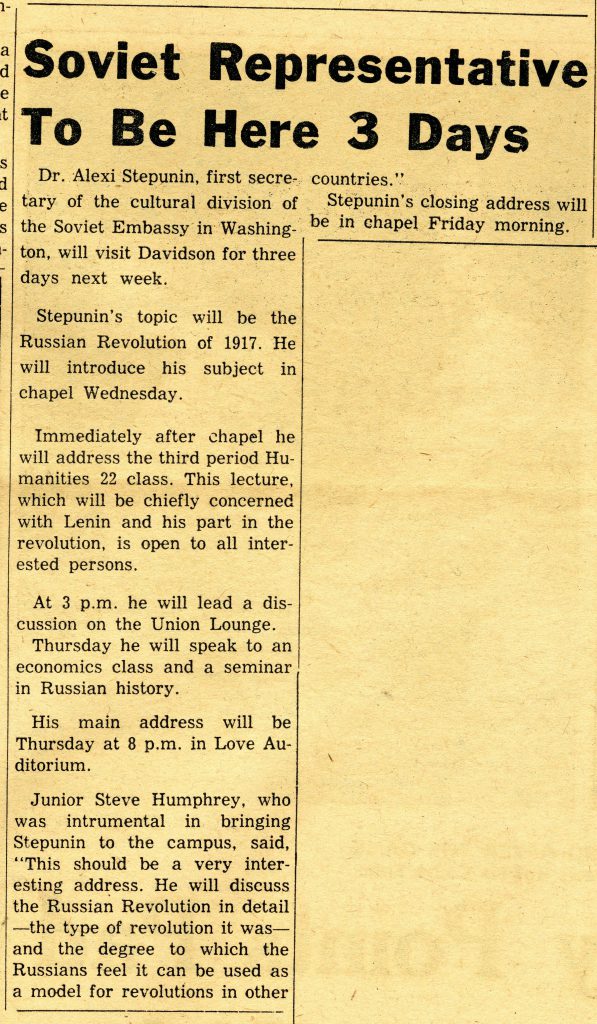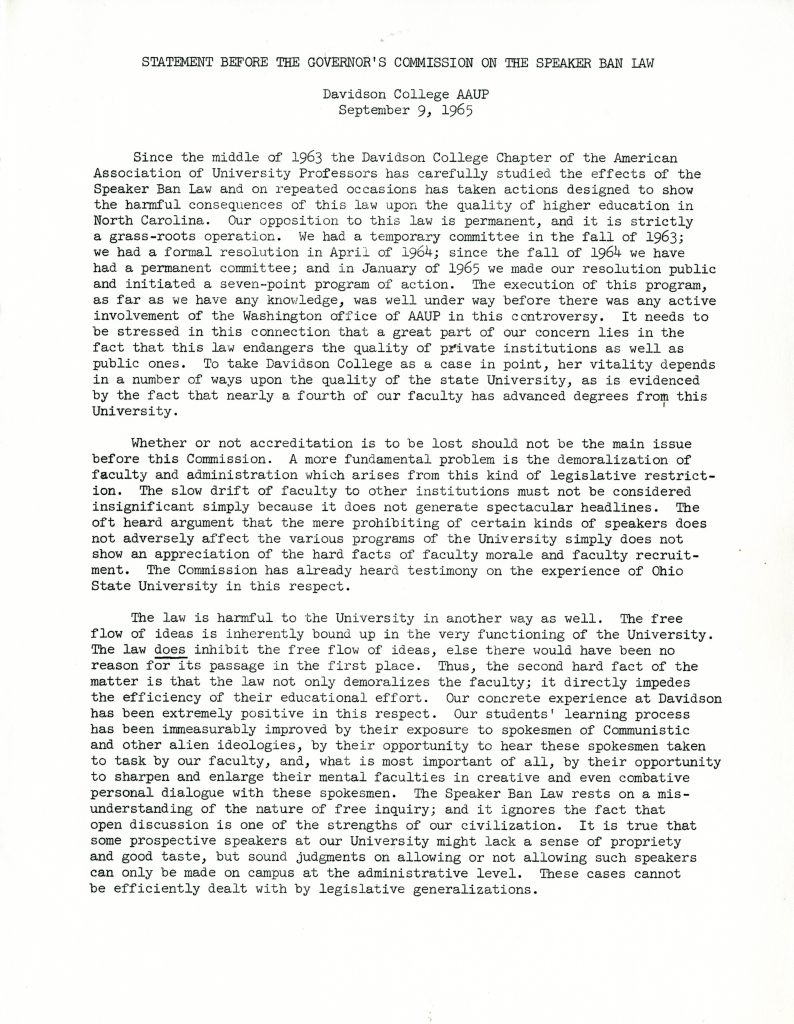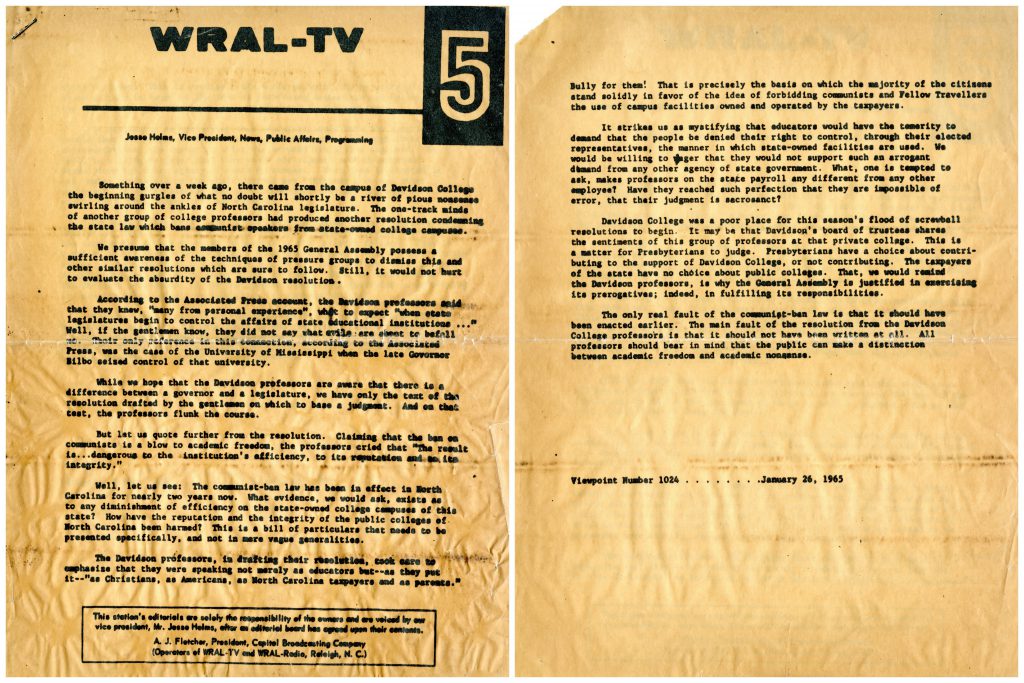Revolution 2017, a multidisciplinary campus-wide initiative that focuses on revolution, broadly conceived, marks the 100th anniversary year of the Bolshevik Revolution. As we begin a year of courses and events related to revolution, let’s look back at a campus visit from a Russian embassy staff member 50 years ago.
In February 1967, Davidson invited Dr. Alexi Stepunin, then first secretary of the cultural division of the Soviet Embassy in D.C. to campus. In many ways, Dr. Stepunin’s visit was revolutionary – he was an campus to discuss the Russian Revolution, and his presence at Davidson was in opposition to the North Carolina Speaker Ban.

The ban, in effect from 1963 to 1968, prevented state supported colleges and universities from inviting speakers who were “known member[s] of the Communist Party;” “known to advocate the overthrow of the constitution of the United States or the state of North Carolina;” had plead “the Fifth Amendment of the Constitution of the United States in refusing to answer any question, with respect to communist or subversive connections, or activities, before an duly constituted legislative committee, any judicial tribunal, or any executive of administrative board of the United States or any state.” While Davidson College, as a private college, was not subject to this law, Davidson faculty members strongly opposed the law and made their opinions publicly known by authoring a position paper.

This paper, put out by the Davidson College AAUP (American Association of University Professors) stated why the faculty felt the ban would have a negative impact even on schools not bound to follow it:
“Our opposition to this law is permanent, and it is strictly a grass-roots operation… it needs to be stressed in this connection that a great part of our concern lies in the fact that this law endangers the quality of private institutions as well as public ones. To take Davidson College as a case in point, her vitality depends in a number of ways upon the quality of the state University, as is evidenced by the fact that nearly a fourth of our faculty has advanced degrees from this University.”

The Davidson faculty had other concerns besides the special relationship between UNC and Davidson – as the statement goes on to explain:
“The law is harmful to the University in another way as well. The free flow of ideas is inherently bound up in the very functioning of the University. The law does inhibit the free flow of ideas, else there would have been no reason for its passage in the first place. Thus the second hard fact of the matter is that the law not only demoralizes the faculty; it directly impedes the efficiency of their educational effort.”

Jesse Helms, then Executive Vice President at WRAL-TV and later a long-serving U.S. Senator, did not much like the rumblings emanating from Davidson College. He focused one of his WRAL-TV editorials on the faculty:
“Something over a week ago, there came from the campus of Davidson College the beginning gurgles of what no doubt will shortly be a river of pious nonsense swirling around the ankles of North Carolina legislature. The one-track minds of another group pf college professors had produced another resolution condemning the state law which bans communist speakers from state-owned college campuses… Davidson College was a poor place for this season’s flood of screwball resolutions to begin.”
It was into this environment that Alexi Stepunin stepped when he visited Davidson early in 1967. His main address while on campus discussed the 50th anniversary of the Russian Revolution and provided a “historical outline” of the Soviet Union from 1917 to 1967.

We too will be looking back at 1917 this year, as well as many other revolutions before and since as the Revolution 2017 initiative spans across multiple courses and public events. May the courage of the 1960s Davidson faculty in defending the “free flow of ideas” within education guide our actions this year!